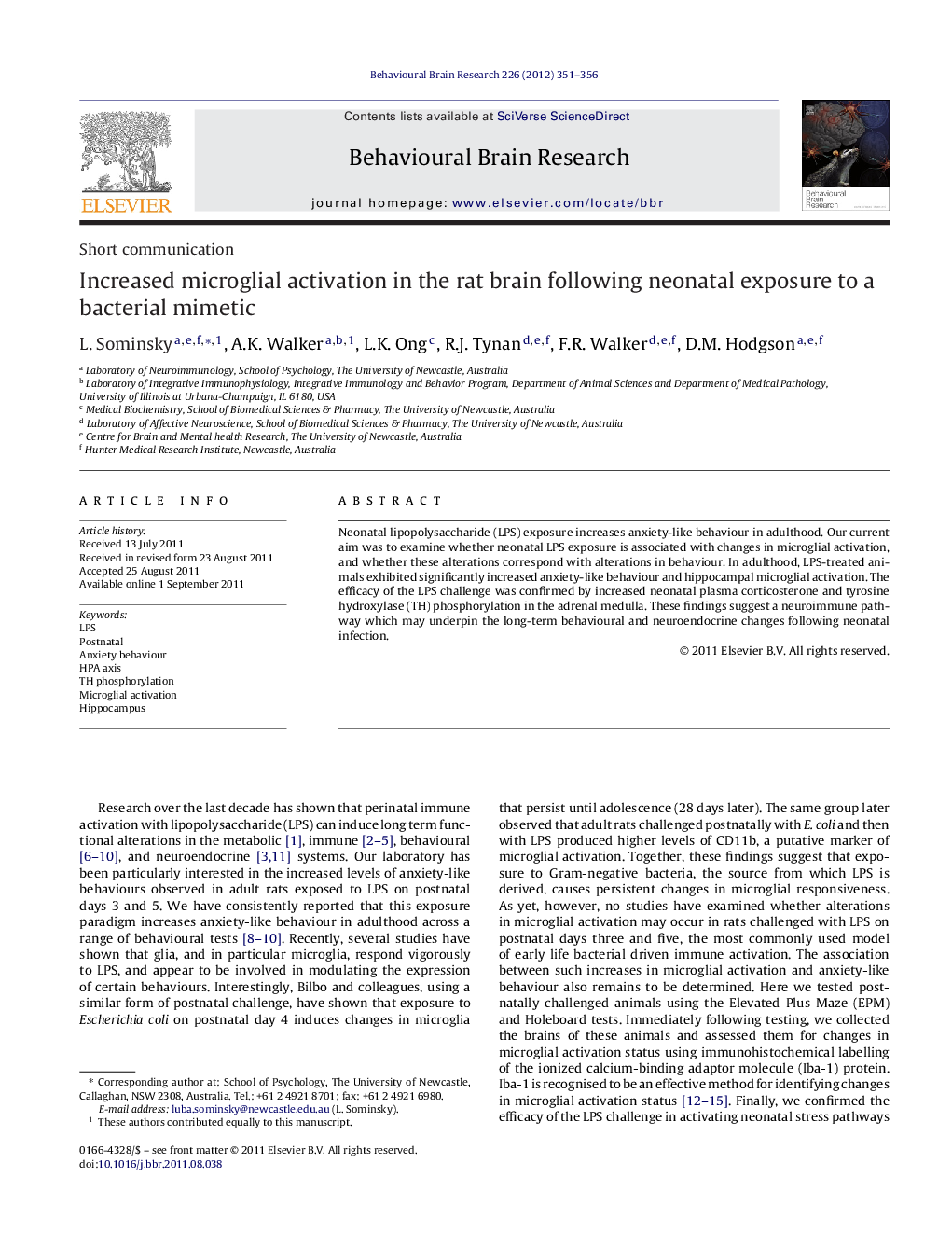| Article ID | Journal | Published Year | Pages | File Type |
|---|---|---|---|---|
| 4313529 | Behavioural Brain Research | 2012 | 6 Pages |
Neonatal lipopolysaccharide (LPS) exposure increases anxiety-like behaviour in adulthood. Our current aim was to examine whether neonatal LPS exposure is associated with changes in microglial activation, and whether these alterations correspond with alterations in behaviour. In adulthood, LPS-treated animals exhibited significantly increased anxiety-like behaviour and hippocampal microglial activation. The efficacy of the LPS challenge was confirmed by increased neonatal plasma corticosterone and tyrosine hydroxylase (TH) phosphorylation in the adrenal medulla. These findings suggest a neuroimmune pathway which may underpin the long-term behavioural and neuroendocrine changes following neonatal infection.
► Neonatal LPS exposure predisposes to anxiety-like phenotype in adulthood. ► The anxiety-like phenotype is associated with increased hippocampal microglial activation. ► These effects may result from neuroendocrine and catecholamine sensitivity during development.
